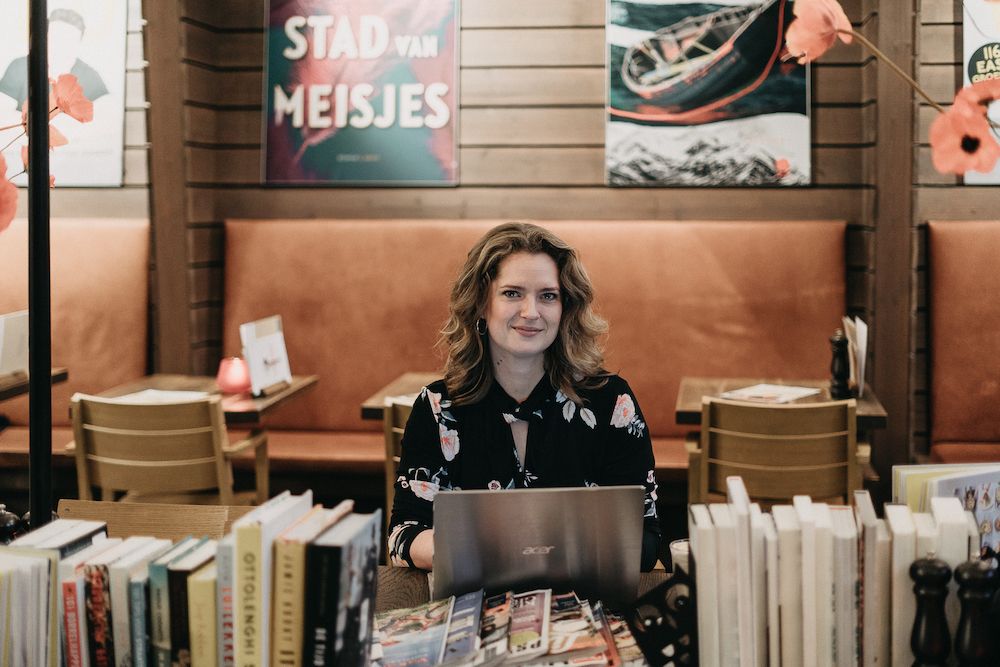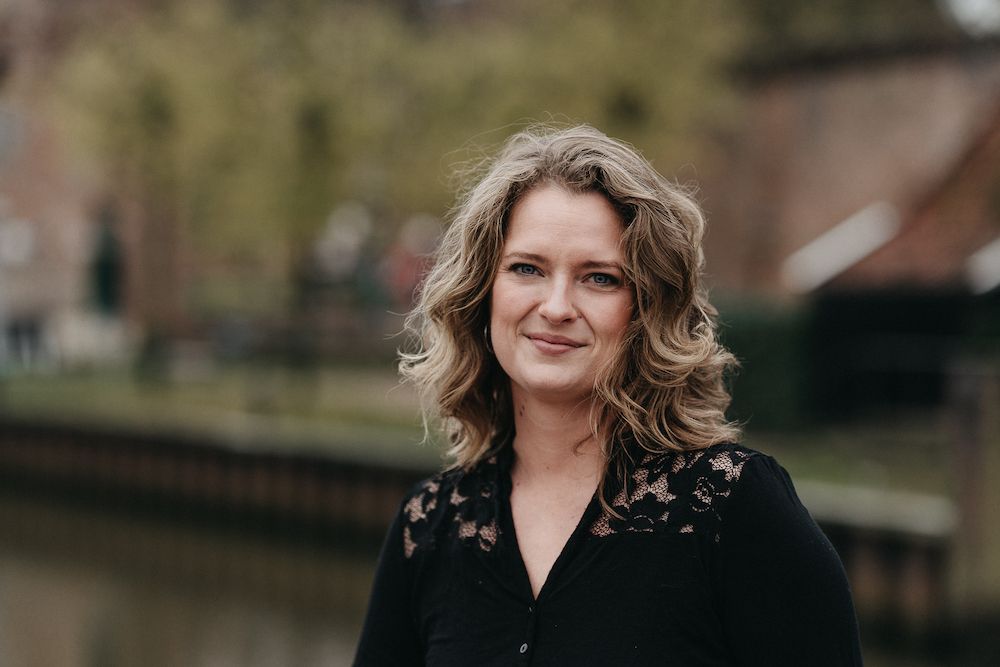Could the key to deeper, more meaningful conversations be in the questions we ask each other?
The idea of doing a Q&A with the woman who, literally, wrote the book on how to ask good questions is slightly intimidating, but that’s precisely what I did when I got together with Elke Wiss, a ‘modern practical philosopher’ and the author of How to Know Everything.
“Wow, those three words each carry a meaning within themselves,” Elke ponders, when I ask what being named a ‘modern practical philosopher’ means to her. “To me, it just reflects that I have a focus on what it means to have a true dialogue, what it means to ask good questions, what it means to practise some critical thinking. I think the word ‘modern’ is actually a nice contribution to the whole thing, because people tend to think that philosophy is a couple of old guys with beards, but in my humble opinion – which is not so humble, I guess – it’s not.
“I’m sure that you yourself have asked questions like: ‘Why am I here?’, ‘What do I want to do with my life?’, ‘Am I happy?’ Those are all practical philosophical questions that we cannot Google ourselves out of. The only way to gain some insight is to practise thinking by ourselves, or in dialogue with others. Does that answer your question?”
It certainly does.

Photography | Elke Verbruggen
Elke has been curious since childhood, and reflects on how, early on, she mastered the question: ‘Why?’ It was later in life that she stumbled upon a course in practical philosophy, and discovered Socratic dialogue for the first time. Here, she learnt how to ask more precise questions, the critical thinking skills that helped her unlock a new level of perception, and an ability to explore today’s biggest moral topics in a calm, productive way.
“I gained a lot of clarity by practising asking really sharp questions, to myself and to others,” she says. “I think we can also gain depth and meaning in our conversations, for example, we have to talk about racism, we have to talk about violence against women, we have to talk about all these topics that tend to heat up or explode in some sort of fight.”
These days, it can feel as though conflict is everywhere we turn, with hundreds of opinions crashing down around us, escalating into heated fights, crossed wires, and missed connections. But it doesn’t have to be that way, all it takes is a willingness to listen and learn. Here, Elke takes us through her tips for having a better dialogue with each other...
How to ask better questions and have deeper conversations
Resist the urge to talk about yourself
When I started writing my book, I stumbled upon this research that really caught my eye: when we talk about ourselves, our body produces dopamine. I like to use the metaphor of a little dopamine factory inside our bodies – if I do not slow down, then my dopamine factory takes over and I will start blabbing about myself. So, for example, you had a fight with your husband – maybe he’s spending money without consulting you – and you just want to share your story. But, I try to find some little hooks that I can put your story on, like a coat, and then start talking about what I think.
Giving advice is sometimes also a form of speaking about myself, because it’s my advice from my point of view. Recently I did a training session, and when I covered this point, one woman said: “Last week, I just had a chat with a friend and she told me she was a bit stressed. The next day, I had bought a yoga mat for her. I gave her the yoga mat and I said: ‘Well, yoga has really helped me, so maybe it will help you. Good luck with your yoga.’” She went into an advising reflex without checking if her friend was interested in yoga. When you do that, depth and connection go out the window – we’re being too egocentric to have good conversations.
Listen without the intention of having an opinion
The way that Socrates would listen is called ‘critical listening’. He listened to language, he listened to concepts, he was very analytical. He also did not listen with the intention of having an opinion himself, but only to understand better. I think we really have to practise developing an attitude to listening that is all about understanding. If my focus is on: “What do you mean?” then my focus is not on: “What would I do?”

Photography | Elke Verbruggen
Establish boundaries for difficult conversations
Have a framework for your conversation – what will this conversation look like? Will it be a debate? Will it be a discussion? If you want it to be philosophical, then maybe propose it to be philosophical.
The moment you hear someone say something you don’t like, the tendency is to throw around arguments. But, usually, the other person gets even more convinced of what they were thinking to begin with. What I would propose is asking: “I just heard you say X. Would it be OK if I asked you some questions about this?” or: “I would like to investigate your argument in a critical thinking way. Would you be OK if we did that?” This implies rules, it implies discipline.
Let go of the pressure of being ‘smart’
I was studying with a teacher called Oscar Brenifier. I was in his workshop, and what he does is expose people, as Socrates did. We all want to be smart, we all want to be liked, but because of what we all want to be, we stop thinking and start pretending.
He had a dialogue with me in front of a group of 20 people, and he just started asking me questions, such as: “Why are you saying this?” Then, of course, I started getting a red face and sweating, and I was like: “I don’t know.” Within five minutes, he drew me to the conclusion that I was trying to be smart. Then, he looked me in the eye and said: “So, you want to be smart, right?” and I was like: “Yes, I guess I want to be smart.” “Well, you think you look smart now?” I was like: “No, I don’t think I do.” He concluded with: “So, you’re stupid. Congratulations, you’re human.”
It may sound like a big drama, but it was not. It was a big relief, actually, because from that moment on I did not have to pretend I was smart. There was all this thinking freedom that I did not have before, because I was using my hard drive for keeping up appearances.
We are stupid at times, we’re arrogant, we’re too quick. But the sooner you reconcile all those little parts of yourself, the more freedom you will have in your mind to start producing interesting things.
To connect with a counsellor to discuss your own relationships and ways to strengthen them, visit www.counselling-directory.org.uk


Comments